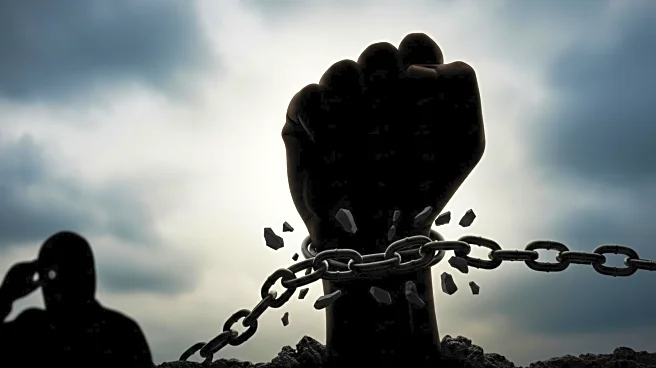What's Happening?
Iran's Revolutionary Guards have arrested eight individuals accused of transmitting sensitive military information to Israel's Mossad. This development follows a series of airstrikes by Israel on Iranian nuclear facilities in June, which resulted in significant casualties, including top military commanders and civilians. The arrests are part of a broader security crackdown during the brief conflict, which ended with a U.S.-brokered ceasefire. The suspects allegedly received training from Mossad through online platforms and were apprehended in northeastern Iran before executing their plans. Materials for making launchers, bombs, explosives, and booby traps were reportedly seized during the arrests.
Why It's Important?
The arrests highlight ongoing tensions between Iran and Israel, with espionage and military confrontations exacerbating regional instability. Iran's actions reflect its efforts to counter perceived threats from Israel and its allies, including the United States. The use of espionage charges and executions by Iran has drawn criticism from human rights groups, who argue these measures serve broader political repression. The situation underscores the fragile security environment in the Middle East, with potential implications for international relations and regional peace efforts.
What's Next?
The arrests may lead to further diplomatic and military responses from Israel and its allies, potentially escalating tensions in the region. Iran's security forces are likely to continue their crackdown on suspected espionage activities, which could result in additional arrests and executions. The international community may respond with calls for restraint and dialogue to prevent further conflict. The situation remains fluid, with potential impacts on regional stability and global diplomatic relations.
Beyond the Headlines
The use of espionage charges and executions by Iran raises ethical and legal concerns, particularly regarding human rights and due process. The broader implications of these actions may affect Iran's international standing and its relations with other countries. The situation also highlights the complex interplay of military, political, and intelligence operations in the region, with long-term consequences for peace and security.











